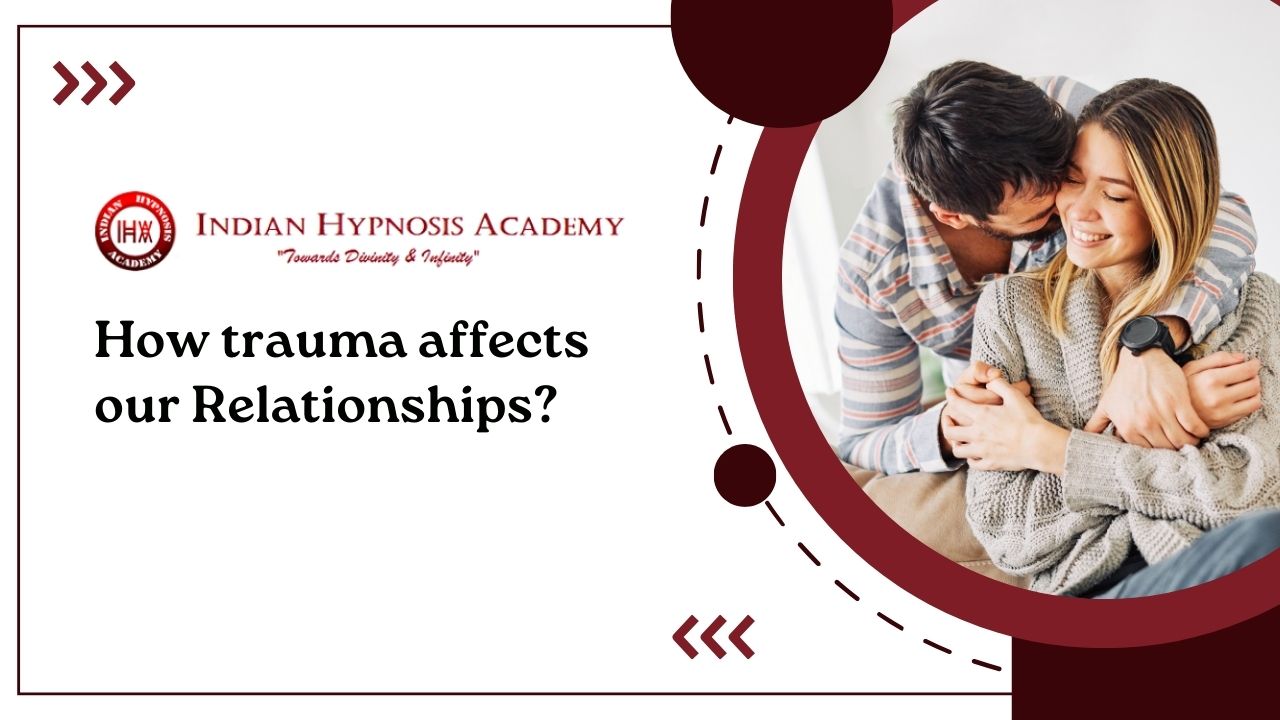Introduction to Trauma and its Effects on Relationships
Welcome to a deep dive into the intricate dance between trauma and relationships. Navigating the complexities of how our past experiences shape our present connections can be both enlightening and challenging. Join us on this journey as we explore the profound impact that trauma can have on the way we relate to others, communicate, trust, and ultimately love. Let’s unravel the threads of healing and growth together in understanding how trauma affects our relationships.
Types of Traumatic Experiences
Trauma can manifest in various forms, impacting individuals and their relationships in profound ways. Some may experience acute traumas like natural disasters or accidents, while others endure chronic traumas such as ongoing abuse or neglect. These experiences can leave lasting emotional scars that shape how people interact with others.
Interpersonal trauma involves harm inflicted by another person, leading to trust issues and difficulties forming healthy connections. Childhood trauma, stemming from adverse events during youth, can influence one’s ability to regulate emotions and navigate intimate relationships later in life.
Additionally, complex trauma arises from repeated exposure to different traumatic events over time. This type of trauma can disrupt a person’s sense of self and safety within relationships. Understanding the diverse nature of traumatic experiences is crucial in supporting those affected on their journey towards healing.
Common Reactions to Trauma in Relationships
When trauma enters a relationship, it can manifest in various ways. One common reaction is the tendency to withdraw emotionally, creating distance between partners. This emotional detachment may stem from feelings of fear or vulnerability post-trauma.
Conversely, some individuals may exhibit heightened levels of reactivity and sensitivity towards their partner’s actions or words. Small disagreements could escalate quickly due to unresolved trauma triggers.
Moreover, individuals who have experienced trauma might struggle with trust issues within their relationships. Past experiences could lead them to question their partner’s intentions or loyalty, impacting the foundation of the relationship.
In addition, communication breakdowns are also prevalent when dealing with trauma in relationships. Difficulties expressing emotions or articulating needs can hinder effective dialogue between partners.
Understanding these common reactions to trauma in relationships is crucial for navigating through challenges and fostering healing and growth together.
How Trauma Can Impact Communication, Trust, and Intimacy
Trauma can deeply impact communication within relationships, often leading to misunderstandings and misinterpretations. When one or both partners have experienced trauma, it can be challenging to effectively express thoughts and emotions, resulting in breakdowns in dialogue.
Trust is another aspect significantly affected by trauma. Individuals who have been through traumatic experiences may struggle to trust others, including their partners. This lack of trust can create distance and barriers in the relationship, hindering intimacy and connection.
Intimacy, both emotional and physical, can suffer when trauma is present. Feeling emotionally distant or disconnected due to unresolved trauma can make it difficult for individuals to truly open up and be vulnerable with their partners.
Understanding how trauma impacts communication, trust, and intimacy is crucial in navigating these challenges within a relationship. By acknowledging the effects of trauma on these aspects of a partnership, couples can work together towards healing and fostering a stronger bond based on empathy and support.
Ways to Support a Partner with Trauma
Supporting a partner who has experienced trauma can be challenging but essential for their healing journey. One way to help is by actively listening and creating a safe space for them to share their feelings without judgment. Validating their emotions and experiences can show your support and understanding.
Being patient and empathetic is crucial as individuals heal at their own pace. Encouraging them to seek professional help if needed, such as therapy or counseling, can also be beneficial in the healing process. Understanding that triggers may arise unexpectedly, being mindful of potential triggers, and having open communication about boundaries are important aspects of supporting a partner with trauma.
Educating yourself about trauma and its effects can increase empathy and provide insight into how to best support your partner. Showing love, understanding, and consistent support can make a significant difference in helping your partner feel safe and valued during their healing journey.
Healing and Recovery Processes for Individuals and Couples
Going through trauma can leave deep emotional scars that affect both individuals and their relationships. Healing and recovery processes are essential for addressing these wounds and moving forward together as a couple.
For individuals, seeking therapy or counseling can provide a safe space to process past experiences and develop healthy coping mechanisms. Engaging in self-care activities such as meditation, exercise, or creative outlets can also aid in the healing journey.
Couples therapy is beneficial for partners navigating the impact of trauma on their relationship. It allows them to communicate openly, rebuild trust, and strengthen their bond amidst adversity.
Supporting each other through patience, understanding, and empathy is crucial during the healing process. Remember that healing is a nonlinear journey with ups and downs – be gentle with yourselves along the way.
By committing to individual growth and fostering connection within the relationship, couples can overcome challenges together and emerge stronger from their shared experiences of trauma.
The Connection Between Trauma and Relationships
Trauma can form a complex web that intertwines with our relationships, impacting them in profound ways. When individuals carry unresolved trauma, it may manifest in their interactions with those closest to them. This can lead to challenges in communication, trust issues, and difficulties in forming and maintaining intimacy.
The effects of trauma on relationships can create barriers that hinder emotional connection and vulnerability between partners. These barriers may result in misunderstandings, conflicts, or a sense of distance within the relationship. Moreover, the lasting impacts of trauma can influence how individuals perceive themselves and others, shaping their beliefs about safety and security.
Navigating through these dynamics requires compassion, understanding, and patience from both parties involved. It’s crucial for partners to communicate openly about their experiences and actively work towards healing together. By fostering a supportive environment built on empathy and acceptance, couples can navigate the complexities that arise when trauma intersects with relationships.
Communication Issues in Relationships Affected by Trauma
Trauma can significantly impact communication in relationships. Individuals who have experienced trauma may struggle to express their feelings or thoughts effectively, leading to misunderstandings and conflicts. They might find it challenging to trust their partner enough to open up about their past experiences, causing barriers in communication.
On the other hand, partners of individuals with trauma may feel overwhelmed or uncertain about how to support them through effective communication. This lack of understanding can create tension and distance in the relationship as both parties navigate through the impacts of trauma on their interactions.
Communication issues in relationships affected by trauma require patience, empathy, and active listening from both partners. It is essential for couples to create a safe space where honest conversations can take place without judgment or fear of triggering past traumas.
Seeking therapy together or individually can help improve communication skills and strengthen emotional bonds between partners impacted by trauma. By addressing these challenges head-on and working towards healthier ways of communicating, couples can build stronger and more resilient relationships despite past traumas lingering in the background.
Coping Strategies for Individuals with Trauma in Relationships
Living with trauma can be challenging, especially when it affects our relationships. Coping strategies are essential for individuals navigating this difficult journey. One effective way is to practice self-care regularly, whether it’s through mindfulness exercises, hobbies, or seeking therapy.
Setting boundaries is crucial in protecting your mental and emotional well-being. Communicate openly with your partner about your needs and limitations. It’s important to prioritize your own healing process while still being present in the relationship.
Seeking support from trusted friends or a therapist can provide valuable guidance and perspective. Remember that you’re not alone in this journey; there are resources available to help you navigate through the challenges of trauma in relationships.
Engaging in activities that bring you joy and fulfillment can also aid in coping with trauma-related stressors. Finding moments of peace and happiness amidst the struggles is vital for maintaining resilience and strength during difficult times.
Practicing patience and understanding towards yourself as you cope with trauma within relationships is key to fostering personal growth and healing over time.
Seeking Professional Help for Healing and Improving Relationships
Seeking professional help for healing and improving relationships can be a crucial step towards navigating through trauma. Therapists specialized in trauma-informed care can provide valuable guidance and support to individuals and couples dealing with the impact of past experiences on their relationships.
Professional therapists offer a safe space for exploring emotions, addressing communication barriers, and developing coping strategies. Through therapy sessions, individuals can learn effective tools to manage triggers, enhance emotional regulation, and build healthier relationship dynamics.
Therapeutic interventions such as cognitive-behavioral therapy (CBT), EMDR (Eye Movement Desensitization and Reprocessing), or couples counseling can aid in processing traumatic memories, fostering empathy, and strengthening bonds between partners. Seeking professional help is not a sign of weakness but rather a proactive approach towards healing wounds and creating positive changes in relationships.
Remember that taking the step to seek therapy shows courage and commitment to personal growth and relational well-being. Professional guidance can empower individuals to overcome challenges related to trauma, cultivate resilience, and foster deeper connections with loved ones.
Conclusion: Navigating Through Trauma in Relationships
Navigating through trauma in relationships is a complex and challenging journey. It requires patience, understanding, and empathy from both partners. By recognizing the impact of trauma on relationships, being open to communication, seeking professional help when needed, and practicing self-care and coping strategies, individuals can work towards healing themselves and their relationships.
Remember that healing from trauma is not a linear process; it takes time and effort. With dedication and support, it is possible for individuals and couples to overcome the effects of trauma on their relationships. By fostering trust, rebuilding communication channels, prioritizing emotional safety, and showing compassion towards each other’s struggles, partners can create stronger bonds built on resilience.
Navigating through trauma in relationships involves acknowledging past wounds while actively working towards a healthier future together. By facing challenges head-on with courage and vulnerability, individuals can pave the way for deeper connections based on mutual respect and understanding. Healing is possible; it just takes commitment and willingness to embrace growth both individually and as a couple.




